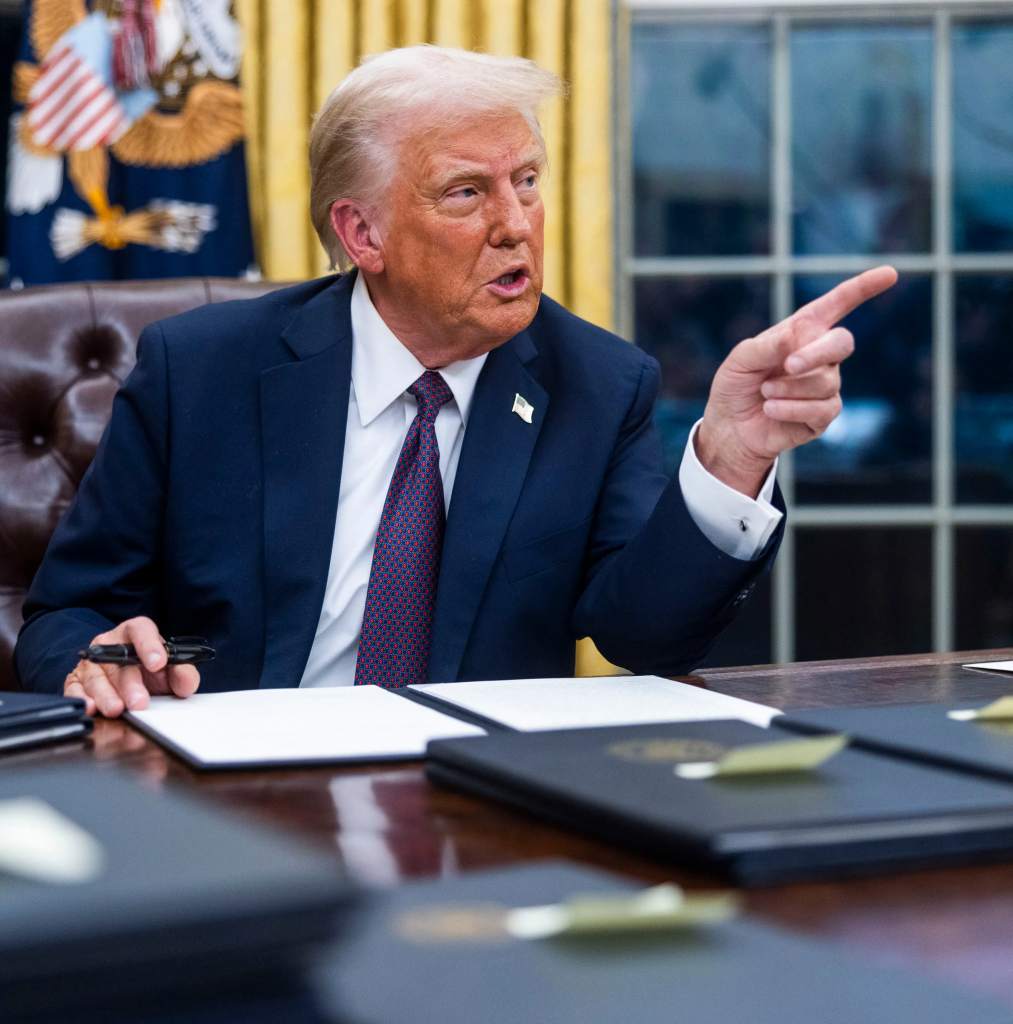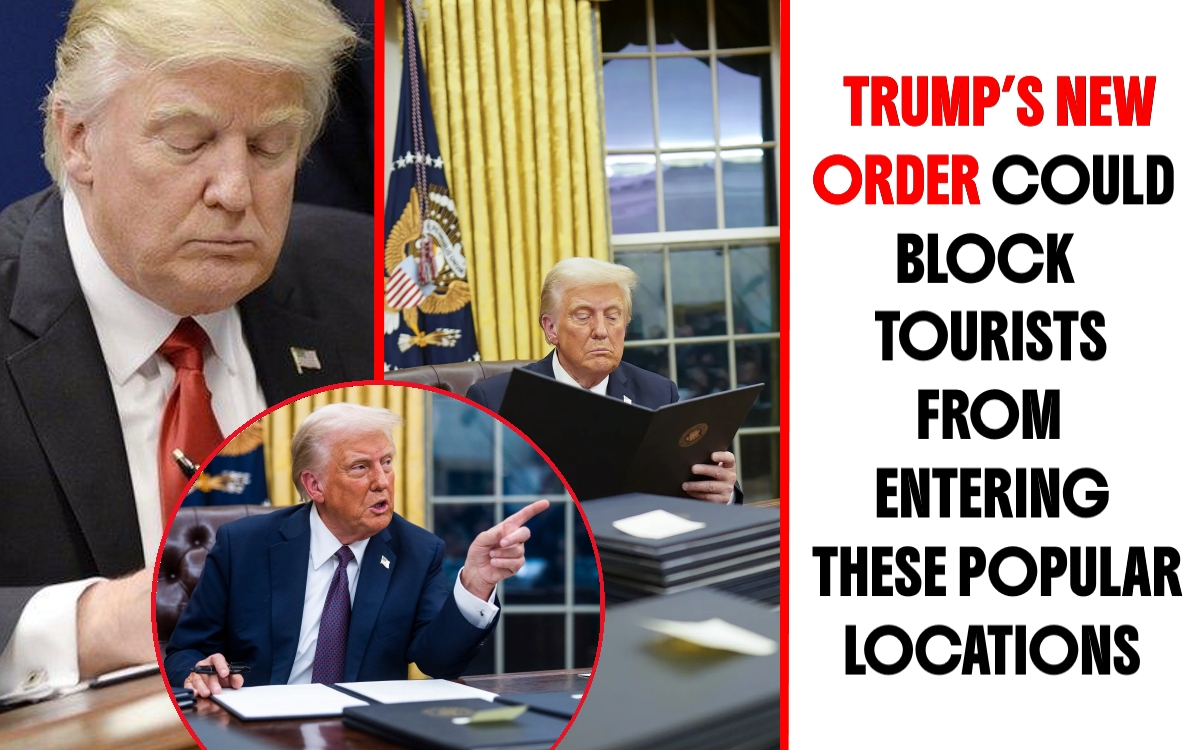On July 3, 2025, President Donald Trump signed a dramatic executive order aimed squarely at foreign visitors to the United States—mandating hefty surcharges at national parks, placing new visa restrictions on certain nationalities, and prioritizing American tourists for coveted campground and monument reservations. The directive, unveiled at the Rose Garden, represents the most extensive shake-up of U.S. tourist policy in decades, and promises to reshape travel plans for millions of international guests.
@Reuters “Trump orders higher national-park fees for foreigners, new visa curbs—Americans get priority booking.” Read the story
The order’s centerpiece is a surcharge of up to $30 on single-entry passes to national parks for non-U.S. citizens—on top of existing entrance fees that average $35 per vehicle. According to the Reuters report, the administration projects the measure will generate an additional $150 million annually to shore up crumbling park roads and trails while “ensuring Americans aren’t priced out of their own heritage.”

Under the same directive, the National Park Service must reserve at least 60 percent of campsite permits and guided-tour slots for U.S. residents, reducing foreign allotments from 40 to 20 percent—an abrupt reversal of prior policies designed to boost off-season tourism. Park officials warn that popular destinations like Yosemite, Yellowstone, and Zion could see reservation waitlists extend beyond a year for international visitors.
@NatParkService “We’re implementing new fee schedules and reservation priorities as mandated—details at nps.gov/fees.” NPSe tweet
But the order doesn’t stop at park gates. In a parallel move, the State Department has been instructed to tighten visa screening for nationals of 19 countries deemed to pose “heightened security and overstay risks,” echoing the June 9 travel ban detailed in the White House fact sheet. Visitors from those nations now face stricter background checks and reduced visa validity periods—measures that critics argue will deter families, students, and cultural exchange participants.
@StateDept “Enhanced vetting protocols for select nationalities go into effect immediately—check your iVisa account for updates.” Diplomatic tweet
Industry groups reacted swiftly. The U.S. Travel Association warns that foreign visitation—already rebounding after the pandemic—could slump by as much as 15 percent next year. “Higher fees and visa hurdles risk undermining $200 billion in annual visitor spending,” association CEO Roger Dow told CNN Business. “This is a tax on tourism that will cost American jobs.”
Conversely, conservative lawmakers and domestic-travel advocates praised the president. Senator Ted Cruz (R–TX) tweeted, “Finally, putting Americans first at our own parks—foreigners can pay for upkeep, but trails belong to us.” Under #AmericaFirstTravel, supporters argued the move corrects years of “imbalanced” stewardship that favored overseas tour operators over local families.

@SenCruz “American taxpayers shouldn’t foot the bill for global tourists—this order levels the field.” Senator’s statement
Legal experts question the administration’s authority to impose nationality-based park fees, pointing to the Equal Protection Clause and longstanding international agreements. Georgetown law professor Michael Stern told The New York Times that “this is ripe for judicial challenge—differentiating fees based on citizenship may violate fundamental fairness principles.”
At the U.S.–Mexico border, Customs and Border Protection (CBP) has already begun updating kiosks at ports of entry to inform travelers of the changes. CBP Chief Mark Morgan tweeted, “Visitors should review new park fees and visa rules before arrival—see cbp.gov/travel for details.” Yet some CBP officers privately express frustration at the last-minute rollout, warning of long lines and confusion for families arriving this summer.
@CBPChief “New tourist-fee and visa policies are in effect—plan accordingly to avoid delays.” CBP advisory
Beyond national parks, the executive order directs the Department of the Interior to study differential fees for other federal lands—Monument of the Southwest, the Great Smoky Mountains, and even Washington, D.C. National Mall tours could see similar surcharges on foreign-sold tickets. Theme-park operators and private tour companies are also lobbying for carve-outs, arguing that an unequal playing field could push international guests to bypass mandated venues altogether.
At Miami’s bustling cruise port, where foreign tourists account for nearly half of embarkations, local officials fear the ripple effect. Port Miami Director Juan Reyes told Miami Herald that “higher fees at coastal parks like Dry Tortugas could dampen cruise itineraries. Lines at embarkation counters are already bracing for pushback.”
To cushion the blow, the Treasury Department is converting a portion of the new surcharge revenue into a “visitor-stay rebate” for American residents—essentially crediting U.S. taxpayers who pay the fee back via lower income taxes. Whether that rebate will materialize or be swallowed by broader budget cuts remains unclear; congressional skeptics demand binding legislation rather than an executive promise.
@USTreasury “A share of park surcharges reserved for domestic-visitor rebates—details coming in Treasury guidance.” Financial policy tweet
Environmental groups, however, caution that higher fees won’t solve deep-seated funding shortfalls and may discourage stewardship among overseas visitors who often participate in volunteer cleanups. The Sierra Club issued a statement urging a “comprehensive funding strategy” that includes public-private partnerships and Congressional appropriations—rather than penalizing global travelers.
As families finalize summer plans, travel advisers recommend reviewing national-park passes, recalculating budgets, and exploring state parks that remain free to all. Websites like Recreation.gov and tour-operator bulletins have posted timely FAQs. In Detroit, travel agent Maya Johnson tells clients, “We’re steering European groups toward Michigan’s Pictured Rocks and Niagara Falls State Park until the dust settles.”
Whether the executive order will withstand legal scrutiny and maintain broad support remains to be seen. What is certain is that, come this fall, visiting America’s natural wonders will cost foreign guests—and U.S. taxpayers—a price far higher than postcards and souvenirs ever did.





